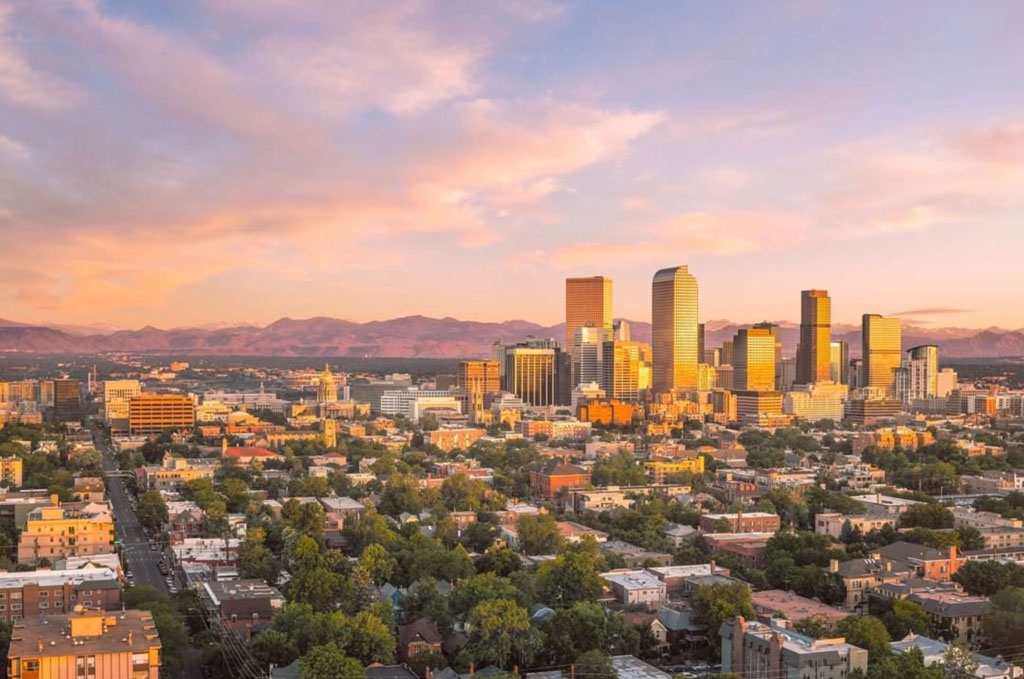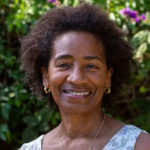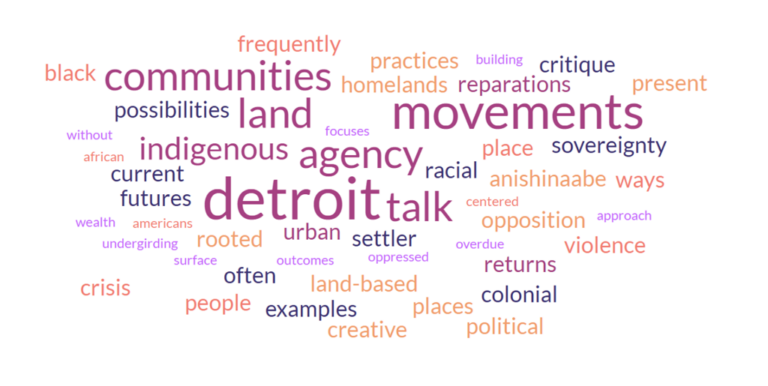In Denver and Beyond, Moving Toward More Just Geographies

 Our annual meeting is just around the corner, and I am excited. This is our first opportunity to meet in person since 2019, and AAG members are showing up! In March, more than four thousand geographers are going to descend on Denver, CO, the Mile High City, bringing with them the “spirit of Geography” More than fifteen hundred geographers will join remotely. Together, this means that well over 50% of our membership will be gathering to share research, ideas, and catch up, with one another for our largest gathering since 2020.
Our annual meeting is just around the corner, and I am excited. This is our first opportunity to meet in person since 2019, and AAG members are showing up! In March, more than four thousand geographers are going to descend on Denver, CO, the Mile High City, bringing with them the “spirit of Geography” More than fifteen hundred geographers will join remotely. Together, this means that well over 50% of our membership will be gathering to share research, ideas, and catch up, with one another for our largest gathering since 2020.
The theme of the meeting, Toward More Just Geographies, sprang from the ideas espoused in my nomination statement, back in 2020 when I talked about what we needed to do to create a stronger, more just AAG and discipline, and in the process, make Geography a force for positive social change. The heart of the theme is that the reality of a just geography is on the horizon, something that we must work towards, continually, but perhaps something that we never fully achieve. This is not setting us up for failure but a recognition that justice is not a finite, unchangeable thing, rather it is something that is constantly evolving towards an ideal. Hence, it’s towards a just geography. Member response to this theme has been heartwarmingly high — 471 of our 1,283 sessions are Just Geography themed.
Set against a backdrop of the numerous responses submitted to the appeal for member ideas on what a just geography means to them, the Presidential Plenary, scheduled for Friday, March 24 at 6:30 PM Mountain Time, is structured as a panel, featuring Tianna Bruno of UT-Austin, Guillermo Douglass-Jaimes of Pomona College, and Kelly Kay of UCLA. Our speakers will reflect on how we can approach a Just Geography in the tools that we use (GIS), in the framing of our research questions, and in our mentoring of students and early-career geographers. These reflections are not intended to represent the only ways in which we can approach a Just Geography, indeed, the member responses are rich with ideas on that subject.
Our intention is for these discussions to continue beyond the time allotted to the plenary and across all the days of the meeting. To facilitate this, AAG staff are creating at the meeting site, space where a curated set of the ideas discussed at the plenary as well as those contained within the member responses to the appeal are projected so that people could come in, sit or walk around and see the statements and spark conversations.
And there’s more! Beyond the immediate Presidential Plenary plans, in this meeting there are clear examples of the ways in which the AAG is moving towards a Just Geography. We are changing the way in which AAG’s conferences interact with the community, becoming less extractive while moving towards long- and short-term community engagement. This goes beyond the customary, popular offerings among our members to encourage mentoring, career development, and professional celebration and recognition. This year AAG also moves to connect with our host community, for example by once again offering a land acknowledgment on our website and during the meeting, and for the first time providing free registration to any member of the 48 tribes and nations with ancestral ties to the land defined by the state boundaries of Colorado. Several participants have taken up this offer. AAG works with and will make a monetary contribution to the work of the Denver Indian Family Resource Center (DIFRC), which works to protect the rights and serve the needs of Native American and Alaskan Native families in the Denver area. The DIFRC will also be on a panel of other Indigenous-led Denver advocacy groups on Friday, March 24 at 11:45 AM MT to discuss Denver as an Indigenous place. This session is co-sponsored by the Indigenous People’s Specialty Group.
The move towards justness is everywhere in AAG 2023’s programming. As noted above, one in three sessions is devoted to our theme of Toward a More Just Geography. A focus on just geographies is also a factor in our choice of honorees such as this year’s Honorary Geographer, Rebecca Solnit, who has worked conscientiously from an intersectional view of activism for climate action. AAG has given one of its highest recognitions to a person whose work arguably centers on justness. You can see Ms. Solnit alongside AAG members Farhana Sultana and Edward Carr on Saturday, March 25, at 10:20 AM MT, discussing the new book to which Sultana and Carr are contributors, Not Too Late: Changing the Climate Narrative from Despair to Hope. Ms. Solnit will deliver the Honorary Geographer lecture on Sunday, March 26, at 11:45 AM MT. Local independent bookseller Boulder Book Store will sell copies of Ms. Solnit’s books onsite for signings.
Reducing our carbon footprint: Working with AAG’s Climate Action Task Force, we are applying the lessons we’ve learned to a less carbon-intensive meeting this year. The past three years have forced us to become more adept at organizing the virtual experience and now we are learning how to manage a more travel-intensive experience while continuing to reduce our carbon footprint. This is in line with a key commitment made by the AAG in 2020 to estimate and report the carbon footprint of the annual meetings, using the baselines that were established then. Our goal is to reduce the carbon footprint of our meeting by 45% by 2030, relative to 2010 values. Our meeting in Denver is likely to be on track for meeting that goal, something that unfortunately, is not as likely with our planned meeting in Honolulu. As laid out by AAG executive director Gary Langham recently, this is another aspect of the work we have been doing, which includes divesting from fossil fuels as well as making sustainable choices for our management and office space.
This year, AAG is investing significant resources in making the Denver meeting hybrid, increasing accessibility to members. At a time that many other organizations are pivoting back to in-person-only meetings, AAG has made a commitment to continue to offer virtual and hybrid experiences so that presenters and participants could take part without traveling to Denver, thereby increasing accessibility to the meeting. AAG has worked with other institutions to test “nodes,” the most active of which will be at Montreal, but there are others forming in other locations, such as UC-Fullerton in California. The organizers of these nodes are trailblazing for future meetings; as technology improves and costs drop over the years, we can look forward to these approaches becoming the norm for AAG meetings. Find out more about this year’s nodes.
Personal choices also matter. AAG is encouraging our meeting participants to make low-carbon travel choices to attend the meeting, and low-carbon transportation choices on the ground. We encourage you to signal us about your travel decisions using the #AAG4Earth hashtag, or to reach out to us at [email protected].
All of these steps towards making a meaningful and memorable meeting, while small individually, move us along the path towards a Just Geography.
Visit the AAG 2023 website to learn more, register, or plan your participation.
DOI: 10.14433/2017.0127
Please note: The ideas expressed in the AAG President’s column are not necessarily the views of the AAG as a whole. This column is traditionally a space in which the president may talk about their views or focus during their tenure as president of AAG, or spotlight their areas of professional work. Please feel free to email the president directly at raphael [at] geog [dot] ucla [dot] edu to enable a constructive discussion.

